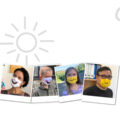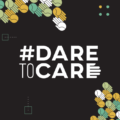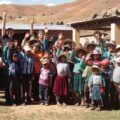
Workshop
A school the size of a city
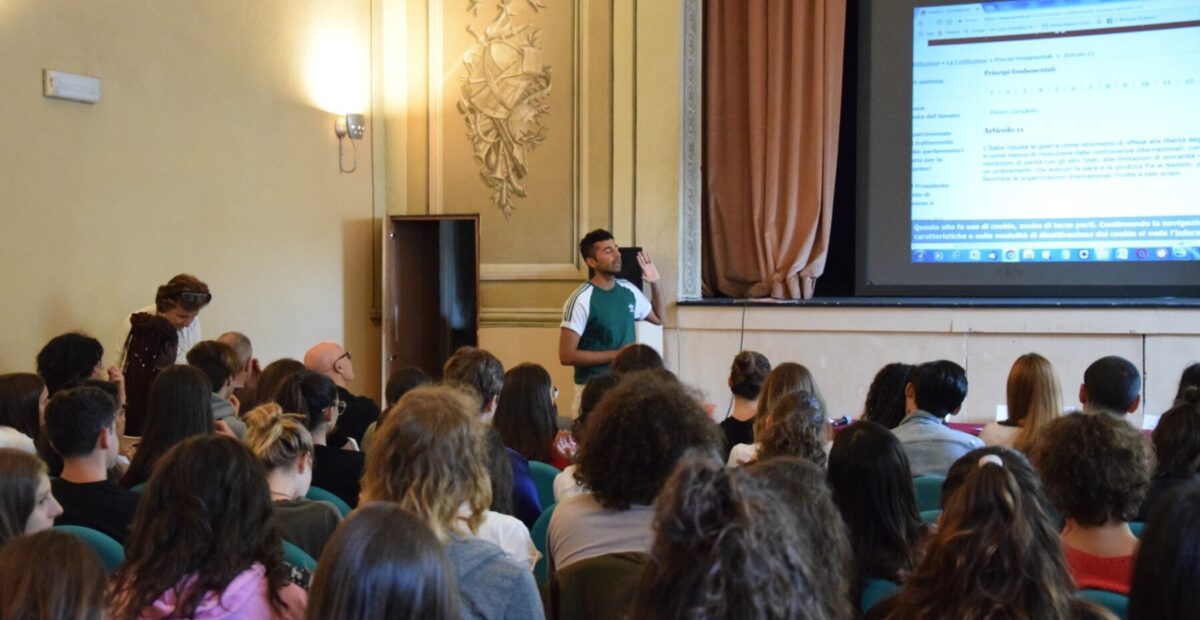
The educational experience of a high school in Prato, Tuscany, where students are involved in activities of “care” to heal the wounds of the city.
Her father defined her as a ‘non-profit entrepreneur’, and this definition suits her perfectly. In the forty years Sandra Mugnaioni spent teaching at a high school in Prato, just outside Florence, she became a reference point for solidarity and fraternity, because of the care she has given to many young people and families in the city. How did she do that? First of all, by teaching well, by doing her job well, and then by letting creativity and sensitivity towards other people’s problems do the rest.
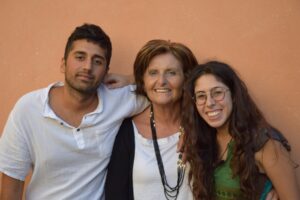
I call Sandra early in the morning – a woman like her is always very busy, she also has a husband, two grown-up kids and a baby grandson. “I am a literature teacher, now retired, but I have always been convinced that fraternity cannot wait, so I used my job to go beyond the regular school curriculum and talk to my students about current social issues, in a way that would encourage them to get involved and be proactive towards our city’s problems”.
For the last twenty years, at the Liceo Copernico in Prato, Sandra has been carrying out projects that aim to make the students ‘active citizens’ in their school, with their city in mind: interactive conferences, training in civic participation, hands-on projects in the local area, theatrical plays. One of the most interesting projects involves Peer Educators. In this project, students choose a topic approved by their teachers, who follow the project year after year, and together they read texts and gather as much knowledge as they can from a variety of sources about the different aspects of the issue. Then, they decide what to do. “Last year, the chosen topic was that of the so-called ‘eco-mafias’, with a strong focus on environmental consciousness: the students read a lot, travelled to the Terra dei Fuochi (Terra dei Fuochi refers to an area in the Campania region in southern Italy, where the local mafia has been disposing of and burning toxic waste for years, with disastrous effects on people’s health and nature.), got in touch with Father Maurizio Patriciello and with the ‘Noi mamme di tutti’ association”.
After that, the students wrote a play, Garduña (‘Cosa Nostra’ in Spanish), which was performed by 700 students from Prato’s high schools in the city’s main theatre. Projects like these equip students with awareness and skills that allow them to become educators to their peers, including those who struggle the most. Even after they finish school, these students keep looking for opportunities to do good, and they don’t leave their teacher: the result is that the experience is now shared and run by an ever larger group of teachers, both within and outside the school.
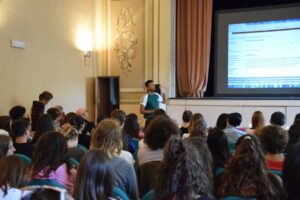
“Of course, you need to have solid technical skills and empathy towards young people: I had to ‘study’ them all over again in a way, even after I retired”.
For Sandra, her retirement is proving to be one of the most active periods of her life, given that she is also involved in local politics, alongside her social engagement with the students outside the school. But what do they actually do? In Prato, there’s the Villaggio Gescal, a large social housing estate built in the 1980s. Many families live there, and some of them face great financial difficulties; all 124 ethnicities present in Prato are represented there. There’s the Don Milani elementary and middle school, another middle school, four professional schools, some polytechnic schools and a high school. It is not hard to imagine how the crisis, which has been strongly felt here, has affected the lives of the young people who go to school in these neighbourhoods. “A friend of mine who worked at the Don Milani school said to me: why don’t you come and help us here with the kids who are struggling? So, just after I retired, I started working in that area with the Peer Educators”. That was the beginning of the ‘Romero after-school tutoring centre’, named after bishop Oscar Romero, murdered in 1980 for fighting in favour of the poorest and most marginalised. The tutoring activities take place twice a week in the civic centre of the village and receive support from the council.
They are attended by students who live in situations of socio-economic marginalisation, and the tutors are retired teachers who still want to help, as well as peer educators for whom this is an opportunity to learn to serve others: “You know, young people need concrete experiences”, says Sandra.
Little by little, they have become a family who, even in the midst of the pandemic, has not stopped taking care of children and their families. “In March we held our tutoring sessions online. We realised that some fifty kids didn’t take part in online lessons with their school teachers in the morning for social and financial reasons, because some of them lived with six other people in two rooms, for example. They were left behind, and we risked losing them completely”.
Sandra and her pupils got in touch with each student, and got them all to start attending their lessons again, and at the end of the year they all passed.
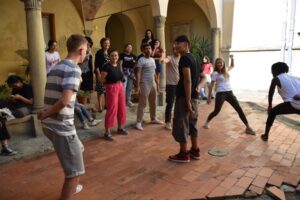
È la grande vittoria del progetto, un lavoro che continua anche oggi, in questa seconda ondata della pandemia, e ha le sue basi di forza nella relazione: «la relazione e i rapporti personali qui sono tutto: tra noi prof, anziani e giovani, affinché ognuno non pensi solo al suo specifico compito, ma sia responsabile del lavoro degli altri, in una sorta di comunità attiva, cerchiamo di stare in sinergia, in collaborazione». E poi il rapporto con i ragazzi che finalmente hanno dei punti di riferimento che nelle famiglie non è possibile assicurare.
Di fondo l’obiettivo della reciprocità dei rapporti che cambiano le situazioni è sempre presente.
«Sai cosa mi ha detto un giorno uno dei Peer educator, un ragazzo, musulmano, di 23 anni?: “Sandra, tu ci dai tanto, ma anche io a te sto dando tantissimo, tutto il tempo che mi avanza nello studio. Lo dono per te, e per tutto quello che stiamo facendo».
